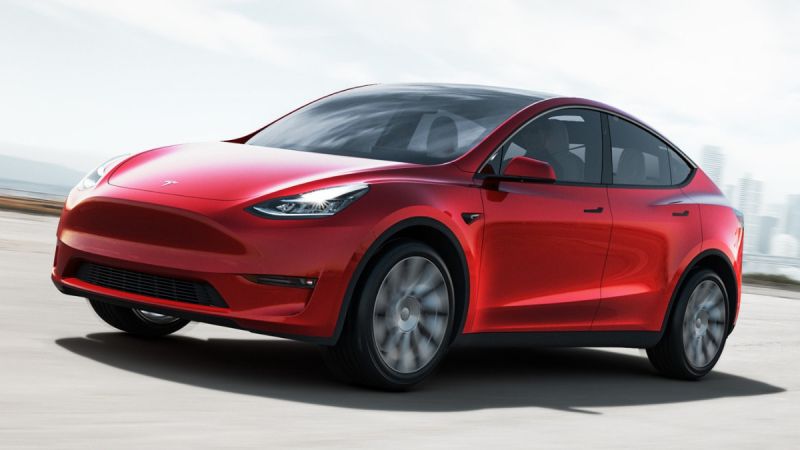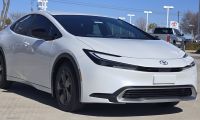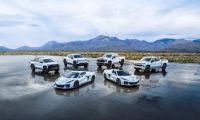According to Mr. Felipe Muñoz, Global Analyst at JATO Dynamics,“While BEVs and SUVs continue to drive the recovery of the industry, growth in all segments has not been sufficient to recover the total volume to pre-pandemic levels”. Total year-to-date volume fell below the 6.93 million units recorded in the same period in 2019, and was similar to levels seen in 2021 when markets still recovering from lockdowns were hit hard due to the worldwide shortage of semiconductors.
In May 2023 Tesla was the manufacturer with the best performance and obtained 2.63% of the market, taking into account all technologies, thanks to the 29,400 units delivered, which represents a market share within the electric car sector of 17.4 % in March and 18.9% so far this year. Behind it we find other groups that are growing strongly, such as SAIC - owner of MG and Maxus - which has achieved an increase of 2.8 points, placing the Volkswagen Group in third place with a 2.7% growth in market share .
We can also find the Hyundai-Kia Group on the other hand, which has lost 5.6 points of market share until May 2023, followed by Stellantis, with a drop of 3.4 points all in all. Total registrations of pure electric cars (BEV - Battery Electric Vehicle) in Europe increased by 65% in May to 169,091 units, representing a total of 15% of all new vehicle registrations during that month.
In addition to the success of the Tesla Model Y, which with 21,530 units has placed itself as the second best-selling car in May in Europe, - counting all technologies - and first among EVs, we find models such as the Volkswagen ID.4, which has been placed in second position as per registration of electric vehicles, with 8,543 units; recording a very strong year-on-year growth of 103%.
The EV market is currently seeing upward forces shaking up the establishment: this is certainly the case of the MG 4, which has become the third best-selling electric car in Europe with its 6,310 units sold, which places it ahead of its rival, the Volkswagen ID.3, which in turn sold 5,529 units. Other models are also getting to know how to actually take advantage of this market movement towards electrification; as a clear example we have the strong increase in the Volvo XC40 EV, which increased its sales by an amazing 329%; the BMW i4, with a 123% increase; and the BMW iX1, which is having its “premier” this year and does so by placing itself in tenth position.
According to Mr. Muñoz again, from Jato Dynamics, “The popularity of the Tesla Model Y has been confirmed in Europe, and it has a good chance of leading both the European market and the global ranking of models by the end of the year. By making use of incentives and a good market position, Tesla has been able to outperform its rivals, while part of the brand's success is also explained by continuous price cuts”.
One could say that Tesla's growth in Europe is truly an impressive feat, managing to capture a significant proportion of the electric vehicle market while heading off strong challenges from major carmakers like Volkswagen and Hyundai-Kia. The electrification of the transport sector is not a trend that will fade away, and Tesla, with the strategic positioning of its Model Y, makes the brand a powerful contender in this ongoing shift towards sustainability.
Placing focus on their research and investment into newer models combined with great exposure to an ever-growing EV market, Tesla's dominance is seemingly unwavering as the manufacturer continues to step up its game. Despite the concerns about global shortages of semiconductors and other components, Tesla has remained resilient in its growth, displaying the strength and capability of its supply chain management.
Even though the production numbers were impacted during initial months due to these shortages, Tesla adapted rapidly by creating contingencies and organizing alternative supplies – interventions which enabled it to bounce back faster than its competition. This adaptability, along with Tesla's constant improvements to efficiency, has given the company a competitive edge in the EV industry, further consolidating its leading position.
Notably, the high acceptance level of the Tesla brand among consumers has played a significant role in the automaker's success. Tesla's fast Supercharger network, over-the-air updates, class-leading tech features, and high safety ratings contributed to the increasing popularity of their vehicles. The consistent customer satisfaction and trust truly set Tesla apart from many other market players.
Source: fleetnews.co.uk
Nico Caballero specializes in Data Analytics and solar energy. He also holds a Diploma in Electric Cars from Delft University of Technology in the Netherlands, and enjoys doing research about Tesla and EV batteries. He can be reached at @NicoTorqueNews on Twitter. Nico covers Tesla and electric vehicle latest happenings at Torque News.Set Torque News as Preferred Source on Google











